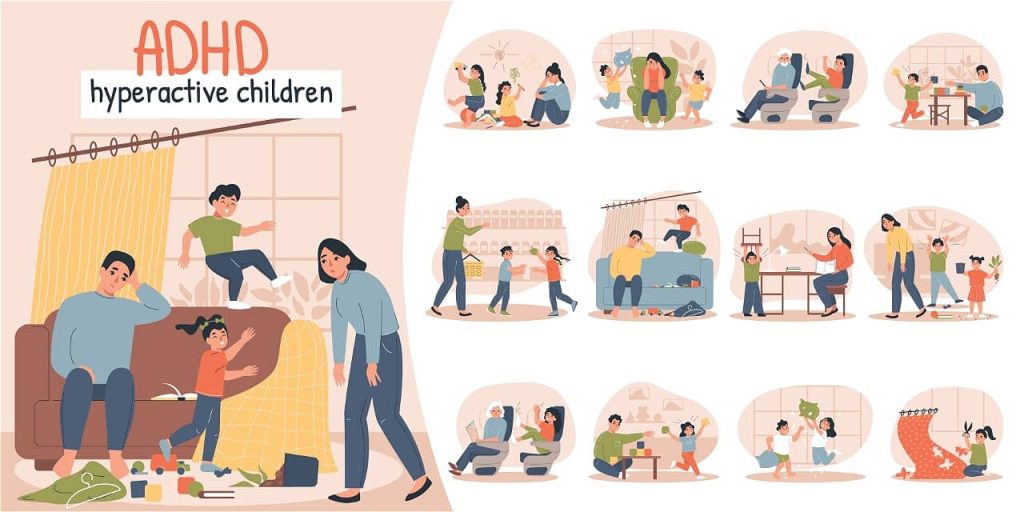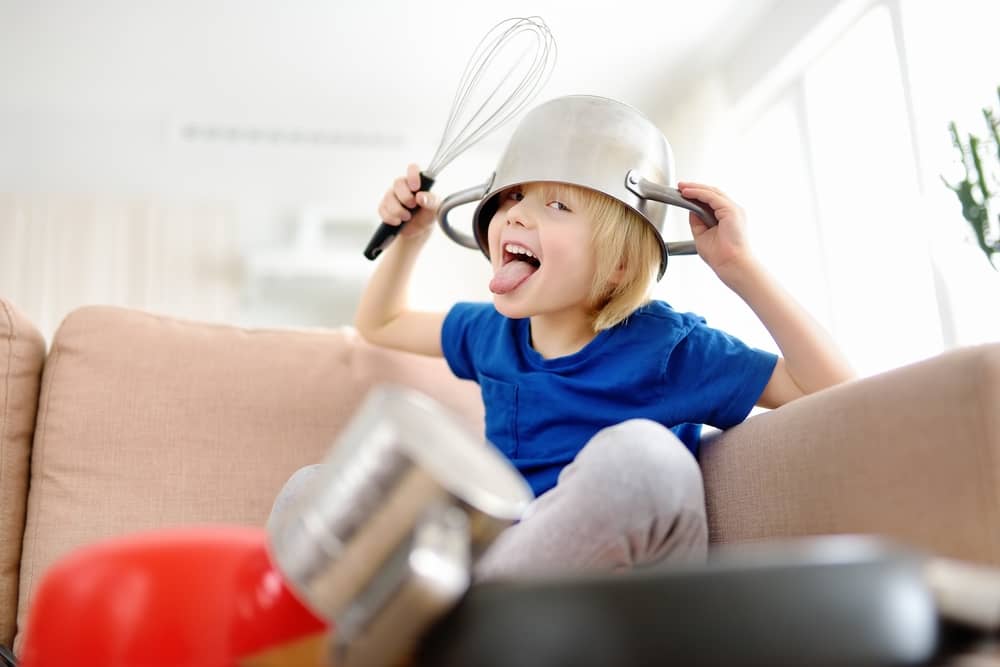ADHD and behavior are two of the most common concerns we hear from parents at SELF4KIDS. As managers and head coaches, we know families often feel overwhelmed when their child struggles with focus, impulsivity, or emotional regulation. It is important to remember that these challenges are not a child’s fault. ADHD is a recognized mental health condition that affects how the brain develops, particularly in areas responsible for attention and self-control.
At SELF4KIDS, our mission is to support both kids and parents with practical tools, empathy, and evidence-based strategies. Many children with ADHD show incredible creativity, energy, and problem-solving skills, but their behavior problems can create a hard time at home and school. This is where structured guidance, coaching, and consistent routines make a powerful difference.
We work closely with families, teachers, and health care providers to transform disruptive patterns into opportunities for growth. From parent training to social skills coaching, we help children build confidence, emotional balance, and resilience. Every child deserves to feel understood, supported, and empowered. With the right interventions, ADHD and behavior challenges become stepping stones toward stronger relationships, better focus, and a brighter future.
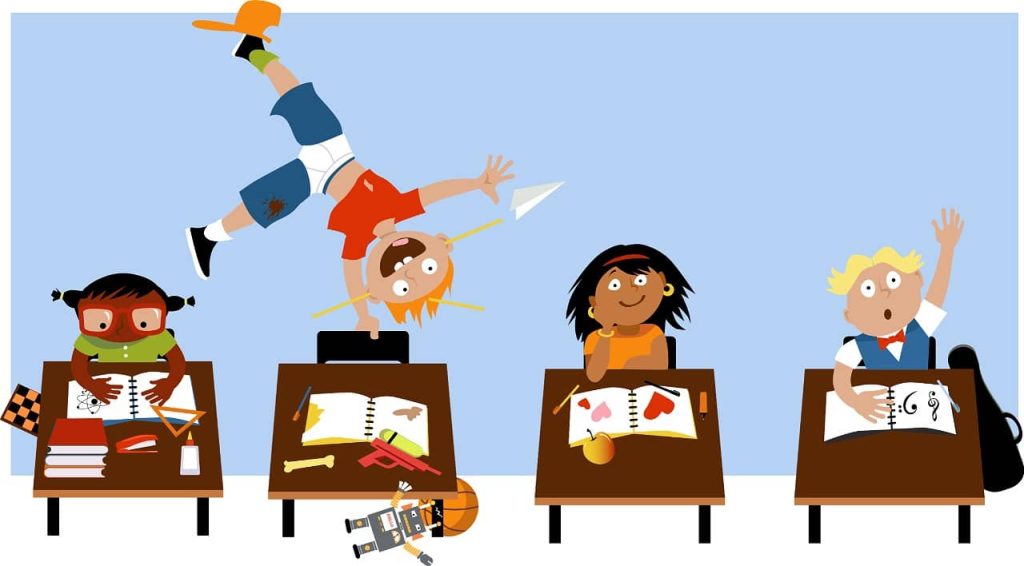
Contents
- 1 What Causes ADHD and Behavior in Kids?
- 2 Brain Development and Environmental Factors
- 3 Symptoms of Inattention and Hyperactivity Disorder
- 4 Behavior Problems and Conduct Disorder
- 5 What Are ADHD Side Effects for Kids?
- 6 Common Symptoms and Daily Life Challenges
- 7 Untreated ADHD and Health Conditions
- 8 ADHD Treatment and Effective Interventions
- 9 How SELF4KIDS Coaches Support ADHD Kids Emotionally?
- 10 FAQ: Kids and Behavior
- 10.1 Q: What causes behavior problems in kids?
- 10.2 Q: How can I tell if my child has ADHD?
- 10.3 Q: Are behavior problems always ADHD?
- 10.4 Q: What are side effects of ADHD in kids?
- 10.5 Q: How can parents help kids with ADHD and behavior?
- 10.6 Q: Do kids grow out of ADHD?
- 10.7 Q: What treatments work best for kids’ behavior?
- 10.8 Q: Is ADHD linked to bad kids?
- 10.9 Q: Can ADHD be diagnosed in young children?
- 10.10 Q: What role do schools play in managing behavior?
- 11 Final Word from SELF4KIDS
What Causes ADHD and Behavior in Kids?
Understanding the roots of attention deficit hyperactivity disorder (ADHD) helps parents, teachers, and health care providers create better support systems. ADHD is not simply about “bad behavior” or “bad kids.” It is a recognized mental health condition defined in the Statistical Manual of Mental Disorders by the American Psychiatric Association.
Brain Development and Environmental Factors
Research from the National Institute of Mental Health shows that ADHD is linked to delayed brain development, particularly in areas responsible for attention and impulse control. Genetics play a strong role, but environmental factors—such as exposure to toxins during early age or complications at birth—can increase risk factors.
Symptoms of Inattention and Hyperactivity Disorder
Child’s ADHD symptoms usually fall into two categories:
- Symptoms of inattention: difficulty staying focused, disorganization, missing details.
- Symptoms of hyperactivity: fidgeting, restlessness, talking excessively.
- Symptoms of impulsivity: blurting out answers, risky behaviors, difficulty waiting.
These similar symptoms may overlap with mood disorders, behavior disorder, or conduct problems, which is why early diagnosis matters.
Behavior Problems and Conduct Disorder
Some ADHD children also show disruptive behavior such as aggression or defiance. Studies connect ADHD with oppositional defiant disorder (ODD) and conduct disorder, where behavioral problems intensify in both young children and older children. Without support, these patterns can affect daily life, family harmony, and school success.
What Are ADHD Side Effects for Kids?
The side effects of ADHD extend beyond symptoms—they shape school performance, peer relationships, and family dynamics. The American Academy of Pediatrics emphasizes that ADHD and behavior should be addressed holistically.
Common Symptoms and Daily Life Challenges
Kids may experience:
- Signs of hyperactivity such as restlessness in class.
- Signs of inattention like losing homework.
- Impulsive symptoms that lead to accidents or risky behaviors.
These common symptoms disrupt social skills training, affect friendships, and can cause a hard time for family members in the United States and beyond.
Untreated ADHD and Health Conditions
If left as untreated ADHD, kids may face:
- Behavioral problems escalating into conduct disorder.
- Greater risk of mental health conditions like anxiety or depression.
- Association with substance use and substance abuse in teenage years.
- Links to substance use disorders, particularly when video game overuse adds to impulsivity.
According to the Department of Health and Disease Control, ADHD can affect years of age into adulthood without proper care.
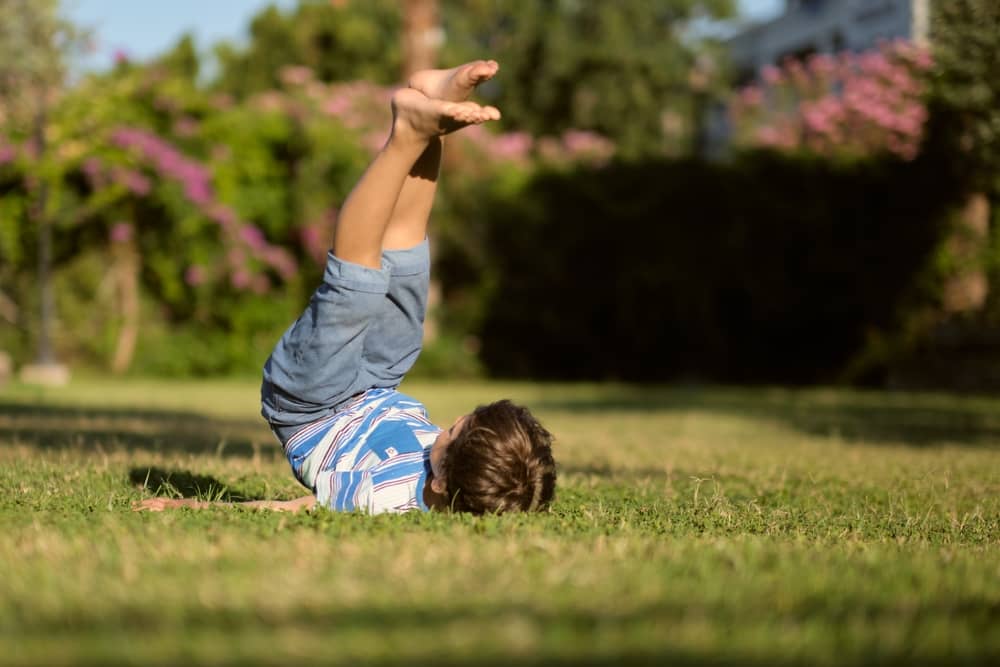
ADHD Treatment and Effective Interventions
The good news is that effective treatments exist:
- Parent training and family therapy to reduce stress at home.
- Behavioral interventions and cognitive behavioral therapy (CBT) to manage bad behavior.
- Social skills training to improve peer interactions.
- ADHD medications prescribed by a health care provider, balanced with monitoring for side effects.
Both inattentive ADHD and hyperactivity disorder types can improve with early diagnosis and tailored care plans. Combining structure at school, emotional guidance at home, and professional support offers the best outcomes.
ADHD is not a reflection of parenting or a child’s worth—it is a behavior disorder with biological and environmental roots. The treatment of ADHD requires patience, compassion, and teamwork between family members, teachers, and professionals.
At SELF4KIDS, we encourage families to seek free consultation with experts, embrace behavioral interventions, and trust that with the right effective treatments, every child can thrive—whether they struggle with symptoms of inattention, symptoms of hyperactivity, or impulsive symptoms.
How SELF4KIDS Coaches Support ADHD Kids Emotionally?
At SELF4KIDS, our coaches believe that every child with ADHD deserves to feel seen, valued, and supported. We know that ADHD and behavior challenges can sometimes make kids feel different, frustrated, or misunderstood. That’s why our role is not just about managing symptoms—it’s about creating a positive environment where children build confidence and experience joy in learning and play.
Our coaches use structured routines, playful activities, and social skills training to give kids a sense of accomplishment. Instead of focusing on mistakes or “bad behavior,” we celebrate small wins and highlight a child’s strengths—whether it’s creativity, athletic energy, or problem-solving skills. This shift in focus helps children feel proud of who they are rather than ashamed of their challenges.
We also use role-playing games, movement breaks, and mindfulness exercises to help kids regulate emotions and manage symptoms of hyperactivity or impulsivity. By giving children practical tools to pause, reflect, and choose positive actions, we make space for good feelings and self-control.
Most importantly, SELF4KIDS coaches build warm relationships. A smile, encouragement, or shared success helps children with ADHD realize they are capable, strong, and never alone. That’s the foundation of lasting good feelings.
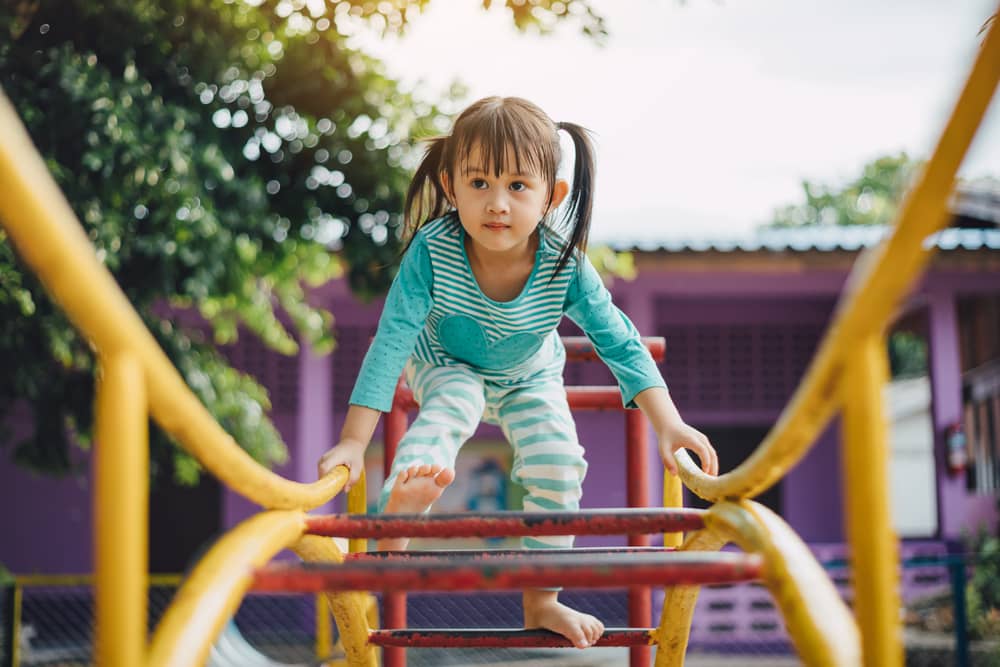
Understanding ADHD and Kids’ Psychological Facts
Research shows that the brain of a child with ADHD develops at a different pace in areas linked to self-control, impulse regulation, and sustained attention. That’s why ADHD and behavior are tightly connected to executive function skills. For example, when a child blurts out answers or has trouble sitting still, it’s not because they want to “misbehave”—it’s because their brain chemistry processes stimulation differently.
As head coaches, we see kids thrive when parents acknowledge these psychological facts:
- The prefrontal cortex (responsible for planning and focus) matures more slowly in ADHD brains.
- Dopamine levels, which fuel motivation and reward, are often lower, making routine tasks harder.
- Strong relationships and positive reinforcement rewire brain pathways faster than punishment.
Recognizing this helps us shape ADHD and behavior strategies that truly work.
Creating Structure at Home
At home, parents can create an environment where kids feel both safe and guided. Here’s what works:
- Consistent Routines – Visual schedules, clear rules, and predictable structures reduce stress.
- Positive Reinforcement – Celebrate small wins. Reward charts, high-fives, and verbal praise help redirect ADHD and behavior struggles toward constructive actions.
- Break Tasks Down – Large chores overwhelm kids. Instead, give micro-steps that allow them to succeed and build confidence.
- Movement Breaks – Since energy is high, incorporate playful breaks. Stretching, jumping, or quick dances regulate emotions.
By using these steps daily, parents can see transformation in ADHD and behavior patterns at home.
Supporting Kids in School
In school, the challenges are different. Teachers juggle large classrooms, so individualized attention is rare. Still, effective strategies exist:
- Seating Choices – Placing kids close to the teacher reduces distraction.
- Clear Instructions – Giving one direction at a time aligns with ADHD brain wiring.
- Collaboration with Parents – Sharing observations helps both home and school align in supporting ADHD and behavior growth.
- Peer Mentorship – Pairing students with supportive peers builds social skills and minimizes isolation.
When teachers reframe ADHD and behavior not as disruption but as a call for tailored engagement, the entire classroom culture improves.
Emotional Intelligence and Behavior Coaching
Kids with ADHD need to be coached in emotional regulation. At SELF4KIDS, we run role-playing games where kids practice naming feelings, pausing before acting, and solving conflicts respectfully. This builds emotional intelligence, which reduces ADHD and behavior challenges over time.
Psychologists agree that empathy from adults is the strongest medicine. Instead of “Why can’t you sit still?” try, “I see you’re full of energy—let’s find a way to use it.” Such reframing rewrites the story of ADHD and behavior in a child’s life.
Bridging Home and School for Lasting Success
The biggest progress happens when parents and teachers work as a team. Daily communication about ADHD and behavior—from homework routines to playground interactions—creates continuity. Kids feel secure when they notice adults speaking the same supportive language.
- Home Tip: Use journals or apps to share updates between parents and teachers.
- School Tip: Create individualized education plans (IEPs or 504 plans) that target focus and social skills.
Why ADHD and Behavior Can Be a Strength
Our philosophy is that ADHD and behavior don’t need to be “fixed”—they need to be guided. Kids with ADHD often grow into visionary leaders, athletes, artists, and entrepreneurs because their brains think differently. The same impulse that disrupts class today might fuel innovation tomorrow.
By combining discipline with compassion, structure with flexibility, we give kids the tools to harness their energy instead of suppress it. When adults recognize the brilliance behind ADHD and behavior, kids gain confidence and purpose.
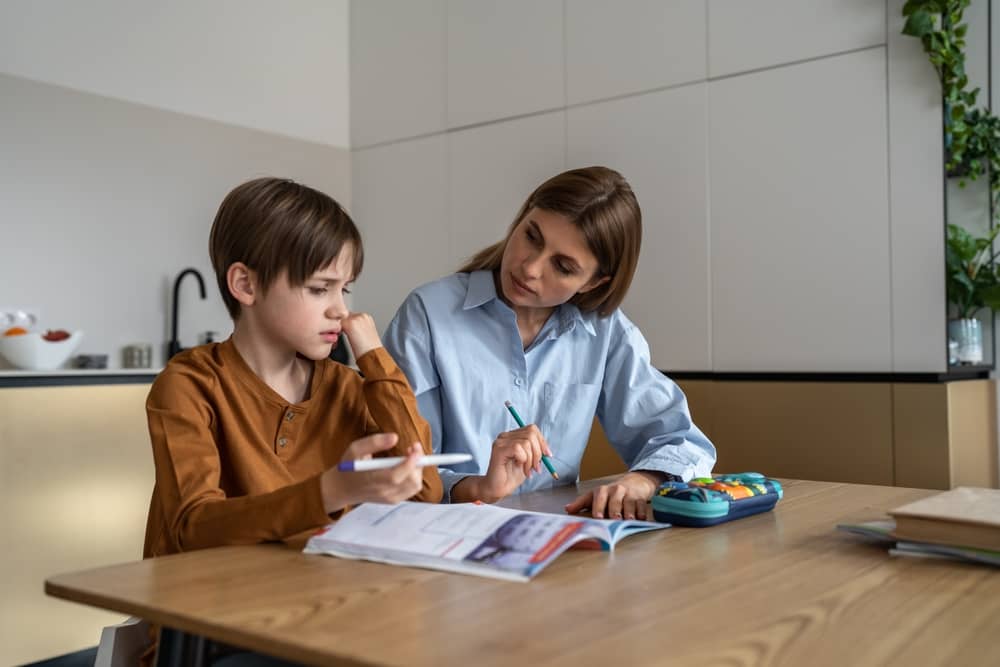
FAQ: Kids and Behavior
Q: What causes behavior problems in kids?
A: Behavior problems often come from a mix of brain development, emotions, environment, and daily routines.
Q: How can I tell if my child has ADHD?
A: Look for ongoing symptoms of inattention, hyperactivity, or impulsivity that affect school and home life.
Q: Are behavior problems always ADHD?
A: No. Some kids show similar symptoms due to stress, learning issues, or other mental health conditions.
Q: What are side effects of ADHD in kids?
A: Trouble focusing, restlessness, risky behaviors, and sometimes difficulties with friends or schoolwork.
Q: How can parents help kids with ADHD and behavior?
A: Use routines, positive reinforcement, and seek parent training or behavioral interventions.
Q: Do kids grow out of ADHD?
A: Some improve with age, but many need ongoing support into adulthood.
Q: What treatments work best for kids’ behavior?
A: Family therapy, social skills training, ADHD medications, and cognitive behavioral therapy (CBT) are most effective.
Q: Is ADHD linked to bad kids?
A: No—ADHD is a behavior disorder, not a reflection of a child’s character.
Q: Can ADHD be diagnosed in young children?
A: Yes. Early diagnosis (even in preschool years of age) leads to better outcomes.
Q: What role do schools play in managing behavior?
A: Teachers can support with clear instructions, structure, and collaboration with parents.
Final Word from SELF4KIDS
As Mahsheed and our head coaches remind parents: “Every child is a story in motion. ADHD and behavior are chapters, not conclusions.” With the right strategies at home and in school, kids don’t just cope—they thrive, build resilience, and shine with their authentic selves.
